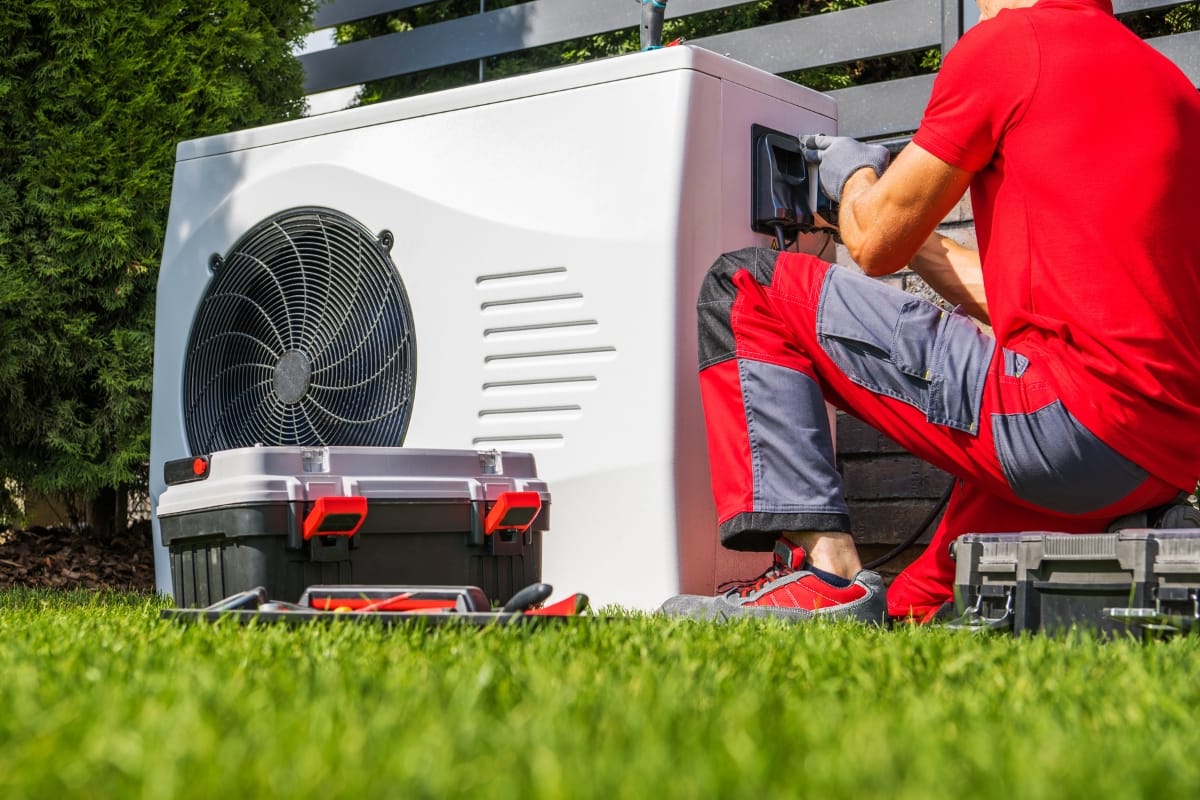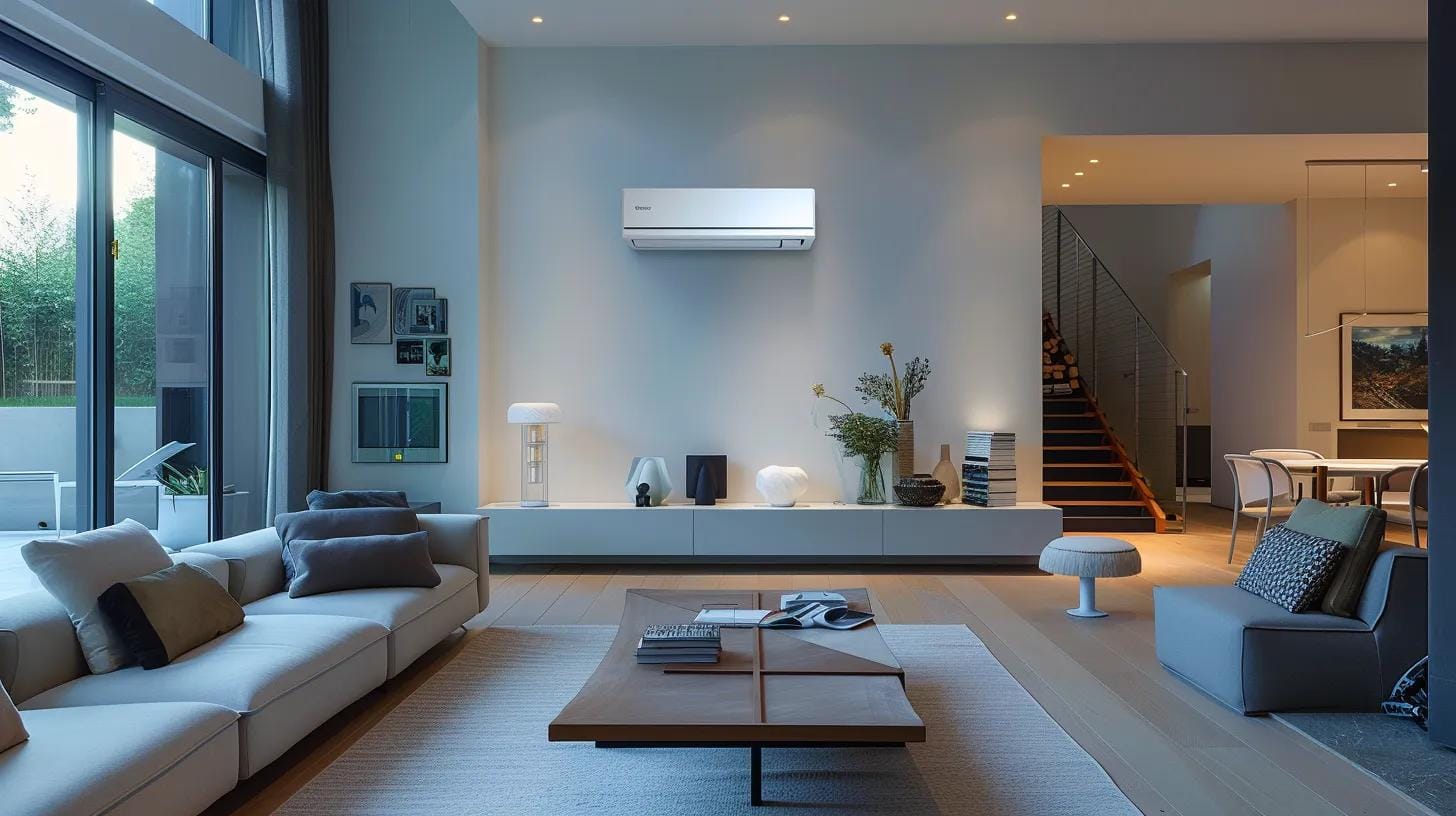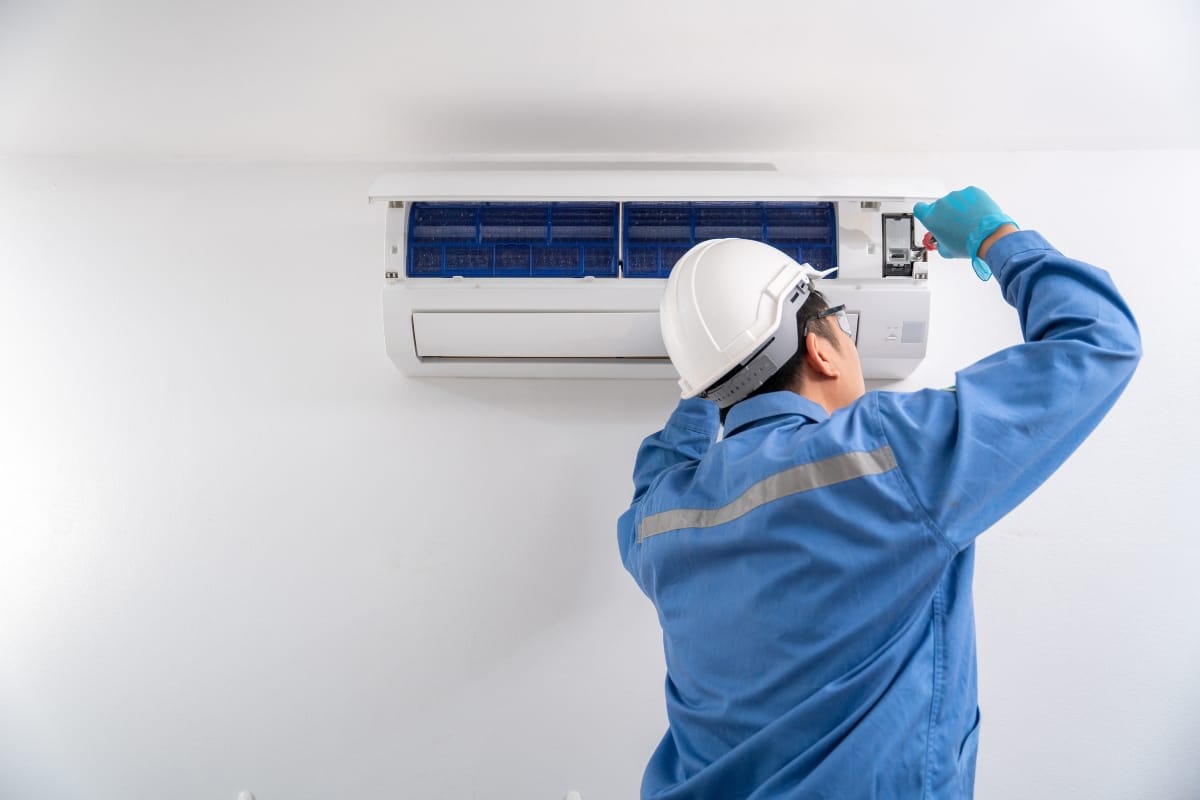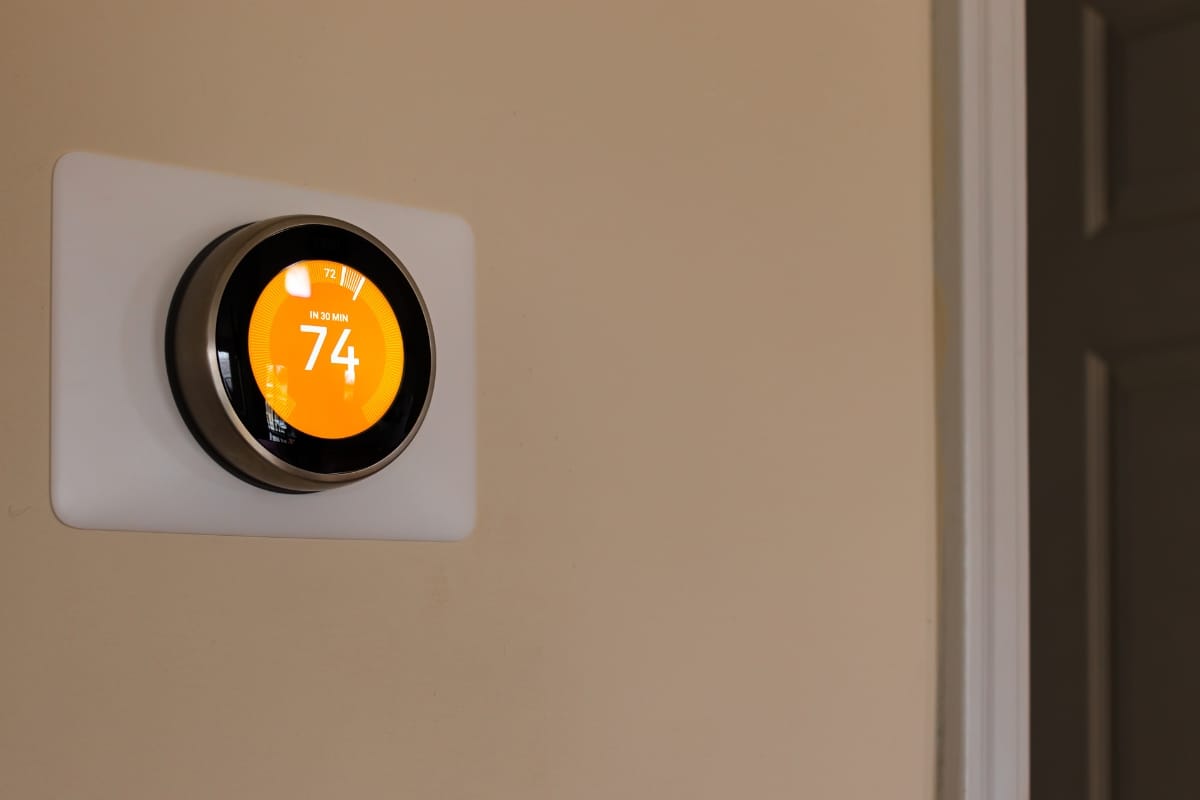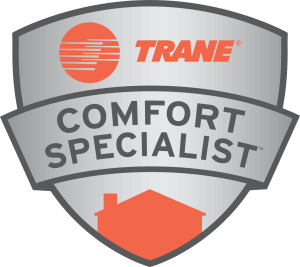As the world increasingly prioritizes sustainability and eco-friendly practices, the integration of renewable energy systems into HVAC (Heating, Ventilation, and Air Conditioning) solutions is revolutionizing how we approach climate control in our homes and businesses.
HVAC renewable energy systems harness the power of solar, wind, and geothermal energy to provide efficient, cost-effective, and environmentally friendly heating and cooling solutions. In this guide, we’ll explore the cutting-edge technologies and benefits of HVAC renewable energy systems, highlighting how they are redefining sustainable living.
From reducing carbon footprints and lowering energy bills to enhancing indoor air quality and increasing property value, these systems offer a comprehensive approach to achieving comfort and sustainability. Get ready to discover how renewable energy can transform your approach to climate control and pave the way for a more sustainable future.
HVAC Renewable Energy Systems: Are They the Future of Sustainable Comfort?
Harnessing Solar Energy for HVAC Systems
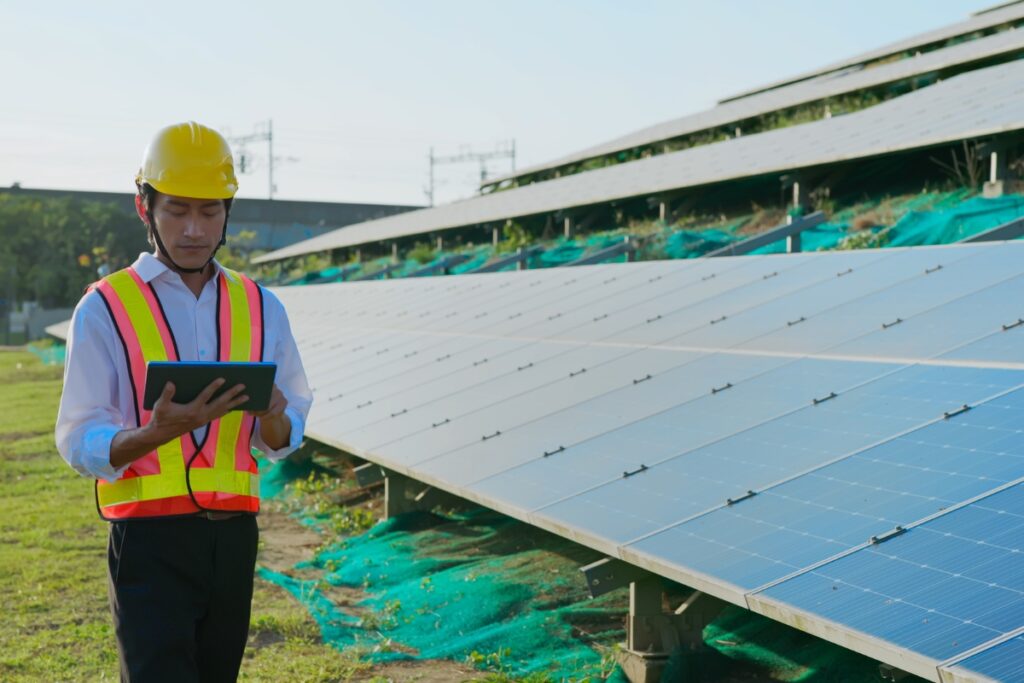
When it comes to redefining sustainable living, one of the key elements to consider is harnessing solar energy for HVAC systems. HVAC renewable energy systems are revolutionizing the way we heat, cool, and ventilate our living and working spaces. By incorporating solar power into HVAC systems, we not only reduce our carbon footprint but also significantly lower energy costs in the long run.
Solar energy is a clean and abundant source of power that can be harnessed using photovoltaic panels or solar thermal collectors. These systems can be integrated into HVAC units to provide heating, cooling, and even hot water. By utilizing solar energy for HVAC systems, we can tap into a renewable resource that helps reduce our dependence on fossil fuels.
One key advantage of solar-powered HVAC systems is their ability to operate efficiently while minimizing environmental impact. These systems work by collecting sunlight and converting it into usable energy, which can then be used to heat or cool indoor spaces. By utilizing this sustainable energy source, we can decrease greenhouse gas emissions and contribute to a greener planet.
Moreover, solar-powered HVAC systems offer long-term cost savings. While the initial installation costs may be higher than traditional HVAC systems, the savings on energy bills over time make them a worthwhile investment. Homeowners and businesses can benefit from reduced utility expenses and potential tax incentives for using renewable energy sources.
Innovative Hybrid HVAC Systems: Combining Renewable Sources
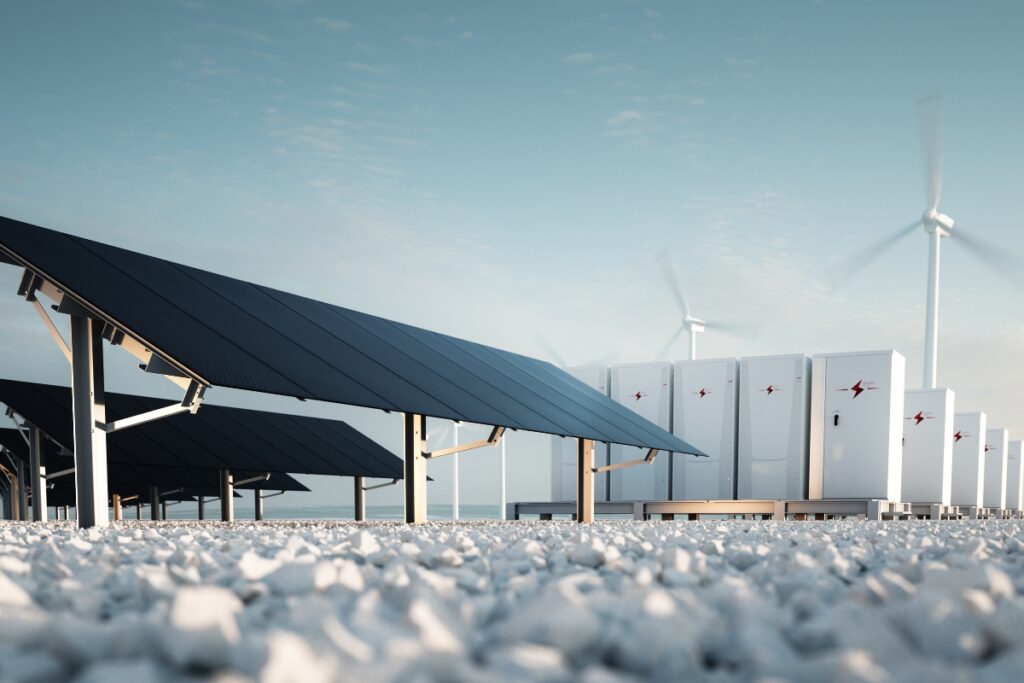
HVAC renewable energy systems are revolutionizing the way we think about sustainable living. By integrating renewable energy sources into heating, ventilation, and air conditioning systems, homeowners can significantly reduce their carbon footprint while enjoying efficient and cost-effective home climate control.
One of the key benefits of hybrid HVAC systems is their ability to combine multiple renewable energy sources. By harnessing the power of solar panels, geothermal energy, and air source heat pumps, these systems can operate more efficiently than traditional HVAC systems, which rely solely on non-renewable energy sources.
Solar panels are a popular choice for powering hybrid HVAC systems. By converting sunlight into electricity, solar panels can provide a sustainable source of power for heating and cooling your home. When paired with energy-efficient heat pumps, solar-powered HVAC systems can deliver consistent indoor comfort without relying on fossil fuels.
Geothermal energy is another renewable source that can be integrated into hybrid HVAC systems. By tapping into the heat stored beneath the Earth’s surface, geothermal heat pumps can efficiently heat and cool your home year-round. This sustainable heating and cooling solution not only reduces your environmental impact but also lowers your utility bills in the long run.
Furthermore, air source heat pumps can complement solar and geothermal energy systems to provide additional heating and cooling capabilities. By extracting heat from the outdoor air in winter and transferring heat outside in summer, air source heat pumps offer a versatile and energy-efficient solution for maintaining indoor comfort.
Energy-Efficiency and Cost Savings in Renewable HVAC Systems
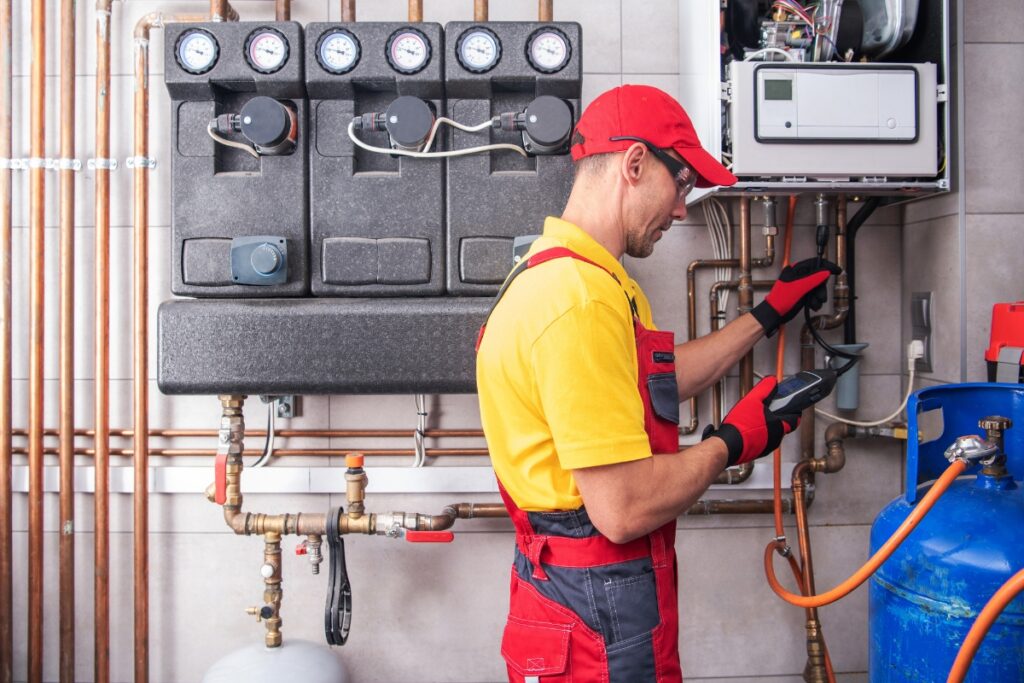
Investing in renewable HVAC systems is a smart way to achieve energy efficiency and cost savings while contributing to environmental sustainability. These systems leverage natural energy sources such as solar, geothermal, and wind power, significantly reducing reliance on conventional energy sources.
Solar-powered HVAC systems, for example, harness energy from the sun to heat and cool homes. By installing solar panels, homeowners can drastically cut their electricity bills. Solar systems often come with government incentives and rebates, further offsetting initial costs and enhancing long-term savings.
Geothermal HVAC systems are another efficient option, utilizing the consistent temperatures below the earth’s surface to regulate indoor climates. These systems require less energy than traditional heating and cooling methods, leading to substantial energy savings over time. Though the upfront installation cost may be higher, the reduced operational costs and longevity of geothermal systems make them a cost-effective choice in the long run.
Wind-powered HVAC systems, while less common, offer yet another renewable option. In areas with consistent wind patterns, small wind turbines can generate sufficient energy to power HVAC systems, slashing electricity costs and reducing carbon footprints.
Integrating smart technology with renewable HVAC systems can further enhance efficiency. Programmable thermostats, for instance, allow precise control over heating and cooling schedules, optimizing energy use and minimizing waste.
In addition to the environmental benefits, investing in HVAC renewable energy systems can lead to significant cost savings over time. While the initial installation costs may be higher compared to conventional HVAC systems, the long-term operational savings and potential incentives such as tax credits or rebates can make renewable energy systems a financially attractive option.
Moreover, the durability and efficiency of renewable HVAC systems contribute to lower maintenance and repair expenses, ensuring a more reliable and sustainable solution for heating and cooling needs. By prioritizing energy efficiency and embracing renewable technologies, homeowners and businesses can create a greener future while enjoying the economic advantages of reduced energy bills and increased property value.
Reducing Carbon Footprint with HVAC Renewable Energy Solutions
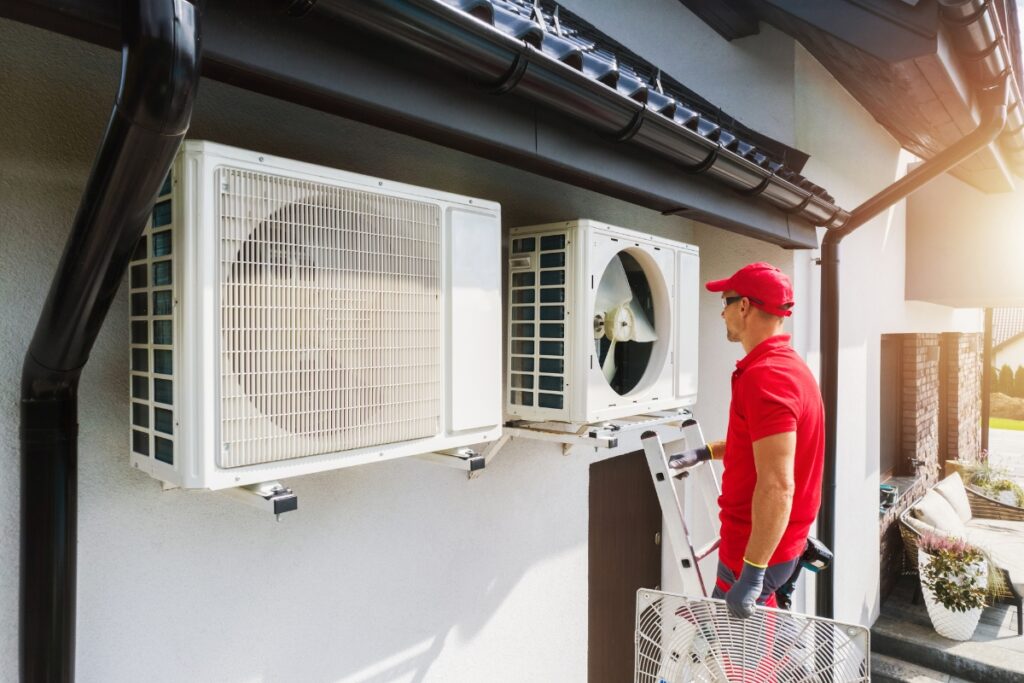
The environmental benefits of adopting renewable HVAC systems cannot be overstated. By reducing reliance on fossil fuels and minimizing greenhouse gas emissions, these systems play a crucial role in mitigating climate change and preserving our planet for future generations.
Traditional HVAC systems contribute significantly to carbon dioxide emissions due to their reliance on fossil fuel-based electricity or direct combustion of fuels like natural gas or oil. In contrast, renewable HVAC systems powered by solar energy or geothermal heat pumps produce little to no carbon emissions during operation.
Furthermore, by embracing renewable HVAC solutions, homeowners can make a significant impact on their carbon footprint. The residential sector accounts for a substantial portion of global energy consumption and greenhouse gas emissions.
By transitioning to renewable HVAC systems, individuals can take an active role in reducing their environmental impact and promoting sustainable living.
Smart Technology Integration in Sustainable HVAC Systems
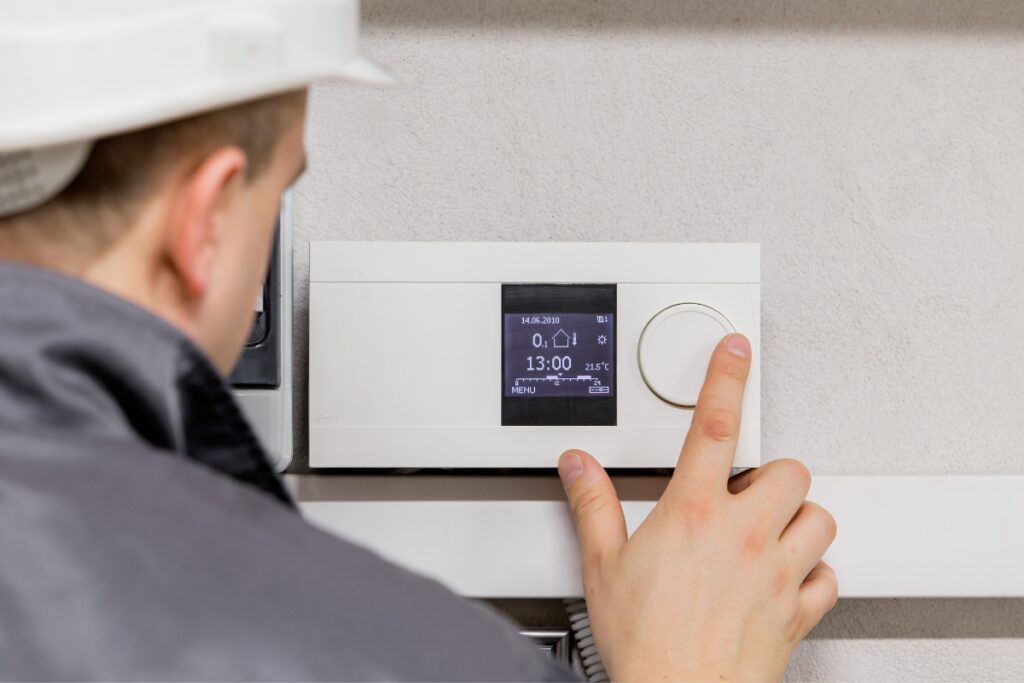
The integration of smart technology has revolutionized many aspects of our lives, and HVAC systems are no exception. Smart thermostats, for example, have become increasingly popular in both traditional and renewable HVAC systems.
These devices allow homeowners to control their heating and cooling settings remotely, optimizing energy usage and comfort. In renewable HVAC systems, smart technology plays a crucial role in maximizing efficiency.
Advanced algorithms analyze real-time data from various sensors to adjust system operation based on factors such as outdoor temperature, occupancy patterns, and energy production from renewable sources. This ensures that the system operates at its optimal level while minimizing energy waste.
Overcoming Challenges: Implementing Renewable Energy in HVAC
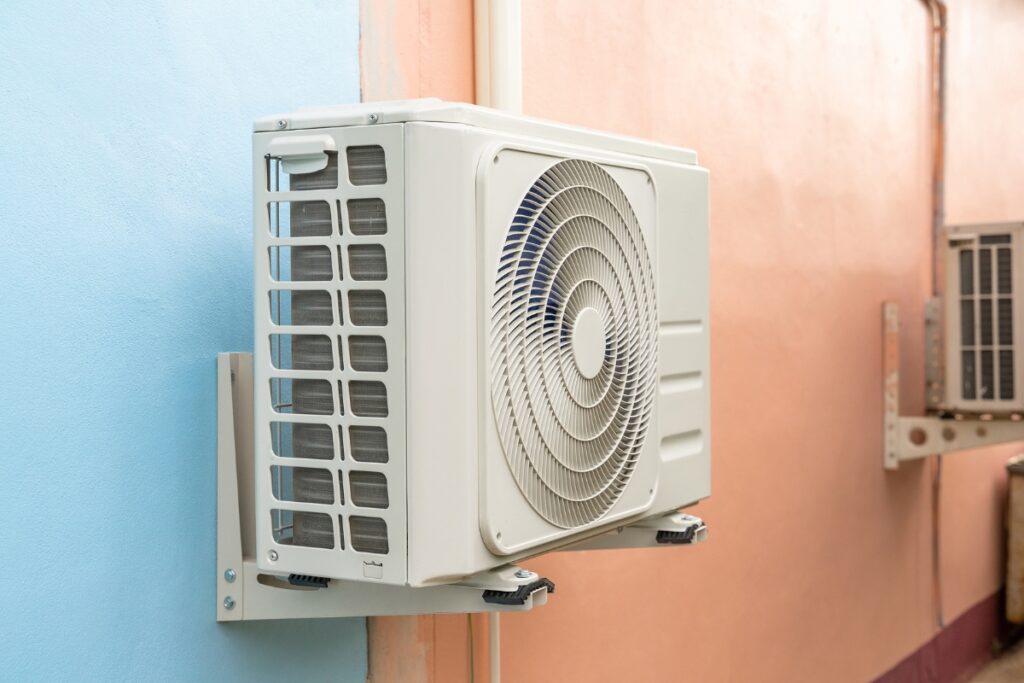
One of the key challenges in implementing HVAC renewable energy systems is the initial cost. While the upfront investment may seem high, the long-term benefits far outweigh the expenses. By harnessing renewable energy sources, building owners can significantly lower their energy bills and reduce their carbon footprint, contributing to a greener environment.
Moreover, the integration of renewable energy in HVAC systems requires careful planning and design. It involves assessing the building’s energy needs, determining the most suitable renewable energy sources, and optimizing system performance for maximum efficiency. This process demands expertise from HVAC professionals who specialize in renewable energy solutions.
Another challenge lies in the compatibility of renewable energy systems with existing HVAC infrastructure. Retrofitting traditional HVAC systems to accommodate renewable energy sources can be complex and may require modifications to the existing setup. However, with advancements in technology and innovative solutions, integrating renewable energy into HVAC systems is becoming more seamless and cost-effective.
Furthermore, regulatory challenges and incentives play a significant role in the adoption of HVAC renewable energy systems. Government policies and incentives can influence the decision-making process for building owners, making it more attractive to invest in sustainable HVAC solutions. Staying informed about the latest regulations and incentives is crucial for successfully implementing renewable energy systems in HVAC.
Sustainable Living Made Easy: Benefits of Adopting Renewable HVAC Systems
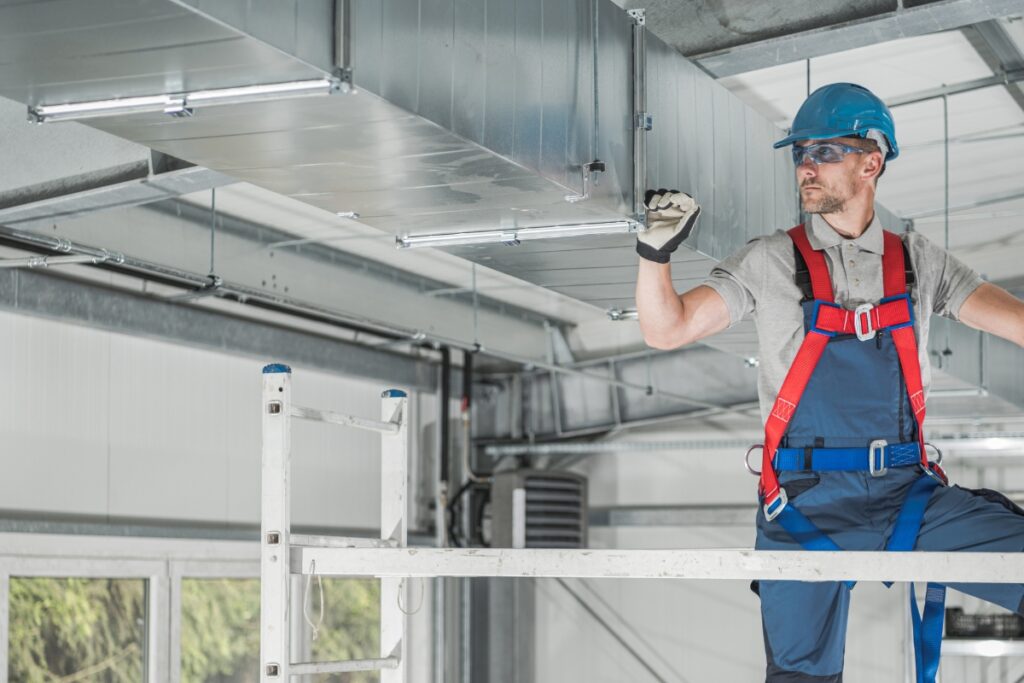
Sustainable living is not just a trend but a necessity in today’s world. One of the key aspects of sustainable living is adopting renewable HVAC systems. HVAC renewable energy systems play a crucial role in redefining how we approach heating, ventilation, and air conditioning in our homes and buildings.
By incorporating HVAC renewable energy systems, we can significantly reduce our carbon footprint and lessen our impact on the environment. These systems utilize renewable energy sources such as solar power, geothermal energy, and air-source heat pumps to provide heating and cooling while minimizing reliance on fossil fuels.
One of the primary benefits of HVAC renewable energy systems is their energy efficiency. Unlike traditional HVAC systems that rely on non-renewable resources, renewable HVAC systems are designed to operate more efficiently, thereby reducing energy consumption and lowering utility bills.
Moreover, HVAC renewable energy systems contribute to a healthier indoor environment. By utilizing clean energy sources, these systems produce fewer greenhouse gas emissions and pollutants, leading to improved air quality and overall well-being for occupants.
In addition to the environmental and health benefits, adopting HVAC renewable energy systems can also result in long-term cost savings. While the initial investment may be higher than traditional HVAC systems, the savings on energy bills over time make renewable systems a cost-effective choice.
Furthermore, HVAC renewable energy systems are known for their durability and reliability. With proper maintenance, these systems can have a longer lifespan compared to conventional HVAC units, reducing the need for frequent replacements and repairs.
Conclusion: Embracing HVAC Renewable Energy for a Greener Tomorrow
HVAC renewable energy systems are redefining sustainable living by revolutionizing how we heat and cool our homes. By embracing renewable HVAC solutions, homeowners can not only enjoy a comfortable indoor environment but also contribute to a greener tomorrow. It’s time to embrace the power of HVAC renewable energy systems and pave the way for a sustainable future.
Embrace the future of sustainable living with professional HVAC services from CoolPro Heating & Cooling. Our cutting-edge solutions are designed to enhance your home’s energy efficiency while reducing your environmental footprint. Contact us through our website form or call 770-694-6232 to learn more about how we can help you redefine your living space with sustainable HVAC solutions. Let CoolPro Heating & Cooling guide you towards a greener, more energy-efficient home.



